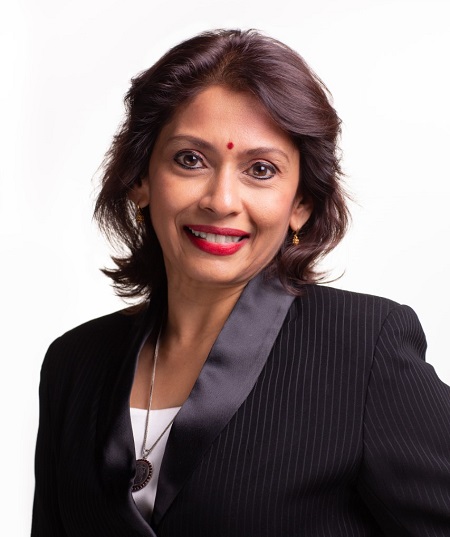Sitpah Selvaratnam FCIArb
Sitpah Selvaratnam FCIArb is a Consultant at Tommy Thomas and a Member of the ICC International Court of Arbitration. She has been practising law in Malaysia since 1991, with a special focus on corporate insolvency, commercial and shipping litigation and disputes. She is regularly appointed as Arbitrator in international, regional and domestic references on commercial, international trade and shipping disputes.
What do you consider to be the biggest challenge in your career as a female arbitrator?
A The human tendency to repeat what is familiar. English, European and American men have enjoyed the confidence of arbitration users and practitioners for a very long time. The continuing momentum of an established pattern recognition does not readily accept the appointment of women of different ethnicity, particularly with a practice based in Asia, as party nominated or presiding arbitrator. There is an ostensible sense of security in choosing a Tribunal comprising members of a similar background. Whilst not conducive to a truly wholesome consideration of the issues in dispute, this mindset cannot be changed overnight.
What do you consider as the biggest challenge for arbitration in the future ?
Maintaining the confidence of users in the process. The growing perception is that arbitration is a commercial enterprise, that generates handsome income for the professionals involved, with only secondary regard to integrity, independence and credibility. This view is not without justification. The aspect of social service in arbitration is quite lost. The users’ apprehension needs to be addressed collectively and comprehensively, before the current economic success of the arbitral fraternity becomes the downfall of the process. Ensuring quality and ethical conduct, free of bias, within this rapidly growing community is a big challenge. In a borderless system, that cuts across a multitude of cultures and thinking patterns, achieving consensus is difficult enough. The uniform implementation and enforcement of standards will be Herculan.
Are there any interesting developments in the field of ADR in Malaysia ?
The Kuala Lumpur Regional Centre for Arbitration (KLRCA) rebranded itself as the Asian International Arbitration Centre (AIAC) in January 2018. This is to reflect the true purport of the Asian-African Legal Consultative Organisation (AALCO) in establishing KLRCA in 1978 as an arbitral institution to support all of Asia, although located in Kuala Lumpur. The Malaysian Arbitration Act 2005 was amended, with effect from 8 May 2018, to follow closely the revised UNCITRAL Model Law. The amendments clarify the status of emergency arbitrators, and the Tribunal’s power to grant interim measures. There are now express statutory provisions governing the confidentiality of arbitrations, and arbitration related court proceedings. The Asian Institute of Alternative Dispute Resolution (AIADR), the first non-profit, member-based Asian centre for ADR development was established in 2018, with a base in Kuala Lumpur. Its special focus is in building capacity and providing opportunities for emerging Asian economics. Q6.
What is it like to work in a predominantly male profession such as ADR?
Challenging, sometimes lonely, but hugely rewarding. It is not uncommon to meet initial looks of disdain as I walk into arbitrators’ lounges, that are inevitably filled with older men. The benefit of doubt, that arises from cultural and gender difference, is not immediately offered. They warm up pretty quickly, though. It requires courage to remain authentic and self-assured, and a willingness to step out of comfort zones. When counterparts appear condescending or disinterested in a different perspective, sound conviction and a determination to contribute, are essential. It is hugely rewarding to ultimately breakthrough barriers. Gender and ethnicity then disappear. In fact, it is replaced with a lot of trust and admiration.
What do you consider to be your biggest achievement in the field thus far?
To be appointed a member of the ICC International Court of Arbitration, as ICC’s nominee for Malaysia. To me, it marks significant international recognition of much that I have strived to achieve and nurture – a high level of skill, experience and soundness of character. The experience gained in this role has been vastly enriching. The diversity, and inclusive approach taken to open and insightful articulation of ideas and opinions, are both refreshing and instructive.
Tell us about your interests, hobbies or any out of work activities.
I am tremendously interested in understanding trauma and emotional challenges. I have spent time studying alternative healing modalities, metaphysical and spiritual concepts, to better understand human behaviour and relationships. This interest manifests in my enthusiasm for the martial arts of Aikido, and Yoga. It also motivates my community work, in facilitating workshops on parenting and relationship building life skills. These workshops give me joy. They are anchored on real life dynamics of 5 core human values of love, peace, truth, non-violence and right conduct. Truly satisfying.
